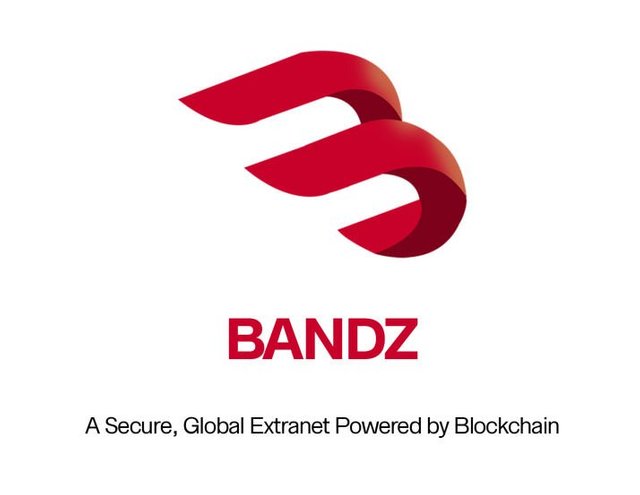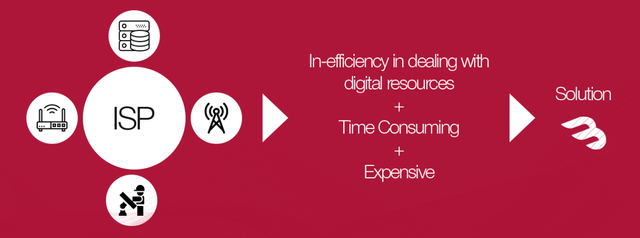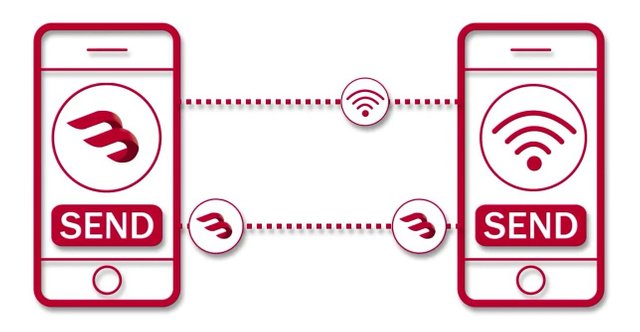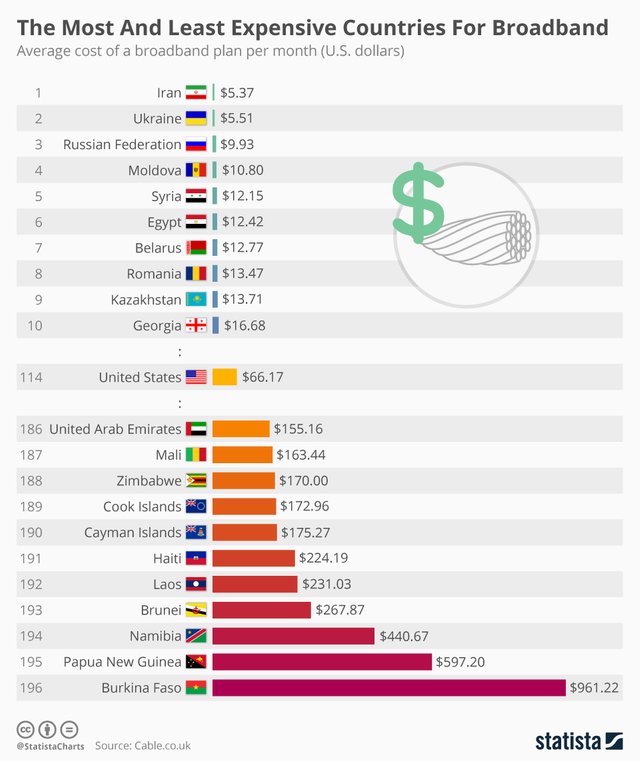BandZ: A Decentralized Network That Will Revolutionalize the Global Internet


Using the internet has already become a huge part of our daily lives. It is our daily dose of having relevant information, virtual communication, and even entertainment. In fact, seeing people holding their gadgets while using the internet to surf, communicate and play games seems a normal circumstance wherever we go these days.
The Internet has become so addictive that it would feel like we’re living in a medieval period without getting ourselves in touch with it for a day. For this reason, different internet plans have been introduced by ISPs or Internet Service Providers to cater the growing demand of internet in the market.
Problems about the Internet
Sure, there are many problems concerning the accessibility of the internet. One great example of it is when you go abroad and if you fail to connect with a public Wi-Fi, you will surely be forced to purchase sim cards of domestic internet providers or pay for your internet roaming services which can be very costly.
Apart from that, internet access restrictions like watching a movie or a sport that you like are still present no matter how willing you are to pay for its viewing. What’s even worse? The privacy and security of your personal data while using the internet provided by ISPs are at stake.
We cannot also deny the fact that the ISP monopolies are dominating with their own internet rules and terms, thus we are left with no choice but to accept those bad Wi-Fi signals, slow internet, and insufficient data plans, no matter how costly they are.
Now, speaking of the cost, we are all aware that there is a great disparity when it comes to internet service cost across different countries. A recent study suggests that most of the cheapest broadbands were offered by the countries included in the Commonwealth of Independent States or CIS while sub-Saharan Africa countries are being charged the most expensive broadbands. The full list can be accessed HERE.
In Philippines where I am currently at, the internet services are pretty expensive, which costs an average of $50 per month for a 3 Mbps average internet speed. For this reason, Philippines has been ranked 106th out of 196 countries around the world having the most expensive broadband services.
I believe one of the reasons why internet services are expensive apart from lack of electricity and other basic internet infrastructures is the continuous reign of the ISPs which serve as the centralized entities that could manipulate and dictate the internet’s prices and services within their jurisdiction. As a result, this will point out to the notion that staying connected through the internet is very expensive.
Now, how about we start adopting the decentralized way of providing internet services around the globe?
The Decentralized Internet Solutions Offered by BandZ

After laying the existing problems regarding the internet, BandZ, a blockchain-based network, came up with a solution of decentralizing the internet by creating a global extranet (VPN, rotating proxy, secured communications, mesh networks, and more).
The BandZ’ Network derived itself from the word “bandwidth”, the term used for the capacity of carrying information. Bandwidth can simply be understood by how fast one can download files or browse online data which is measurable by kilobits per second (kbps) or megabits per second (Mbps).

Being a decentralized network, BandZ aims to provide peer-to-peer sharing of bandwidth as at the expense for exchanging the BandZ tokens. Basically, BandZ’ network has the concept of buying or selling unused bandwidths in return for BandZ tokens. This will enable its users to have an internet experience which is more accessible, secure, and cheaper than what ISPs are able to provide.
Intranet VS Extranet VS Internet
Before we proceed with the technicalities of how BandZ will be able to realize its goals for creating a decentralized internet experience to all of us, let us first define Intranet, Extranet, and Internet.
I am pretty sure you are already familiar with what Internet is, but how does it relate with Intranet and Extranet?

Consider the above figure having a core (Intranet), a second layer (Extranet), and a surface layer (Internet). Basically, the internet network accessibility will all start on the inner core, which is the Intranet.
Say we have a company that specializes in Marketing. The most confidential files such as company procedures, product details, and staff information can only be accessed by the people within the company through the Intranet network. If the company wishes to disclose sensitive information to its client, it can be shared through the Extranet network. The two parties (company and client) must have an end-result of advertising to be available for public viewing. In this case, the data will then be shared with a vast media through Internet.
The BandZ’ Vision to Create a Global Extranet to its Users
Now let us focus more on the Extranet analogy. In a simpler explanation, Extranet is the network wherein sharing of information between two parties is possible. You can either participate by being one of the company’s employee, or client’s representative (as the above sample explanation suggests). Simply put, you can either be the sender or the receiver of the relevant information.
In BandZ’ case, bandwidth will be shared through the Extranet analogy, treating both the individual participating users as Intranets. This can be made possible by communicating through BandZ’ free and downloadable network infrastructure app having the BandZ token as its network denomination.
Since the BandZ network will be running through a blockchain technology, one can ensure that the network transactions will be transparent and more secure in a fast and efficient way. As a result, internet access will become cheaper and more accessible to everyone regardless of the users’ distance from each other.

Apart from that, one can choose to use the BandZ service in an anonymous way, making BandZ a great VPN or Virtual Private Network service provider operating on a Mesh network of mobile and bluetooth devices. VPN will allow BandZ users to communicate with other users without the fear of leaking any personal and sensitive data.
BandZ Running on a Mesh Network
In order to achieve a peer to peer or decentralized connection between the BandZ network users, all of the transactions will be operating on a Mesh network.
So what really is a Mesh network?
Basically, all of our devices go through a central point in order to communicate with other devices. For instance, if you send a message to a person using Facebook messenger, the devices you and your receiver are using will all depend on Facebook’s network to completely deliver your message.
The idea of having a Mesh network is to eliminate such central point and directly transact with other devices. One good example of this is using BitTorrent. One can upload while the other one can download files simultaneously, creating a direct contact between the sender and the receiver.

As BandZ runs in a mesh network, every device will be able to communicate directly as long as they are connected in this wired web, regardless of how distant they are physically. The BandZ network will make this possible by enabling the ISPs to interact with each other and create partnerships. This will result in users being able to enjoy a secured internet access internationally without cutting ties with their internet providers, thus getting rid of costly internet roaming services.
One of the greatest advantages of running Bandz on a mesh network is the widened internet accessibility especially in areas where internet infrastructure is not much developed. Perhaps, this could be the answer to countries having very expensive internet accessibility to enjoy a cheaper and faster internet connectivity.
Use Cases of BandZ
Eddie’s Educational Tour

Eddie is one advocate of Computer Literacy. He reaches out to remote areas to educate children on how to use computers and how to responsibly browse the web. However, some of the isolated zones still lack internet infrastructures that prohibits Eddie from browsing the web. With the use of BandZ network, Eddie is able to acquire bandwidth to help him access the web regardless of the absence of any internet infrastructures within his visited area.
Fely’s File Transfer

Fely uses BandZ for uploading a file having a huge file size. BandZ analyzed the bandwidth demand for uploading such file. However, the BandZ network recognizes that the current bandwidth supply to Fely’s account isn’t enough to finish file transfer. To aid the insufficiency, BandZ’ helper algorithm automatically alerted other BandZ users to provide additional bandwidth for Fely.
Mav’s Movie Marathon

Mav is a Filipino who is a great fan of American movie series. Unfortunately, some of his favorites are limited to US regions only. With the use of BandZ network, he is able to watch those series because of the anonymity BandZ network offers through its VPN features.
Revolutionizing the Global Internet through BandZ
As the Digital accessibility and equity gets more and more complicated over time, the need for having an internet system that could revolutionalize the currently dispersed networks becomes more necessary as the time advances. With the help of decentralized internet solutions offered by BandZ, the future of the internet will surely be available to the global community in a cheaper, secured, and fast manner. By then, we can finally conclude that having a good internet service can never be expensive.

Saludos, BUENA HORA LLEGO ESTA PUBLICACIÓN, GRACIAS POR COMPARTIRLA...
👏👏👏
Submitted.
wishing your luck.. great content...
Thanks as always, jez! :D